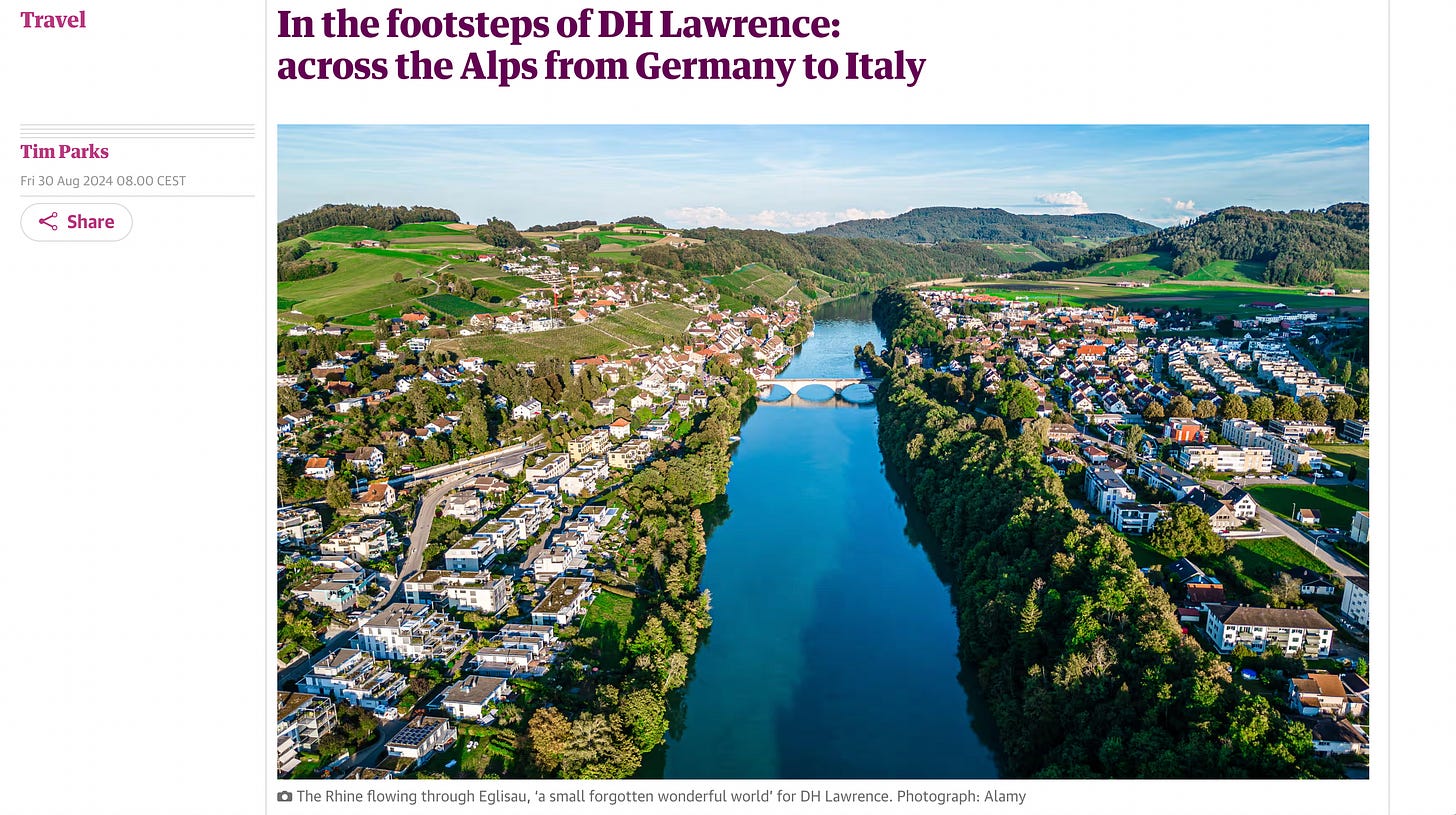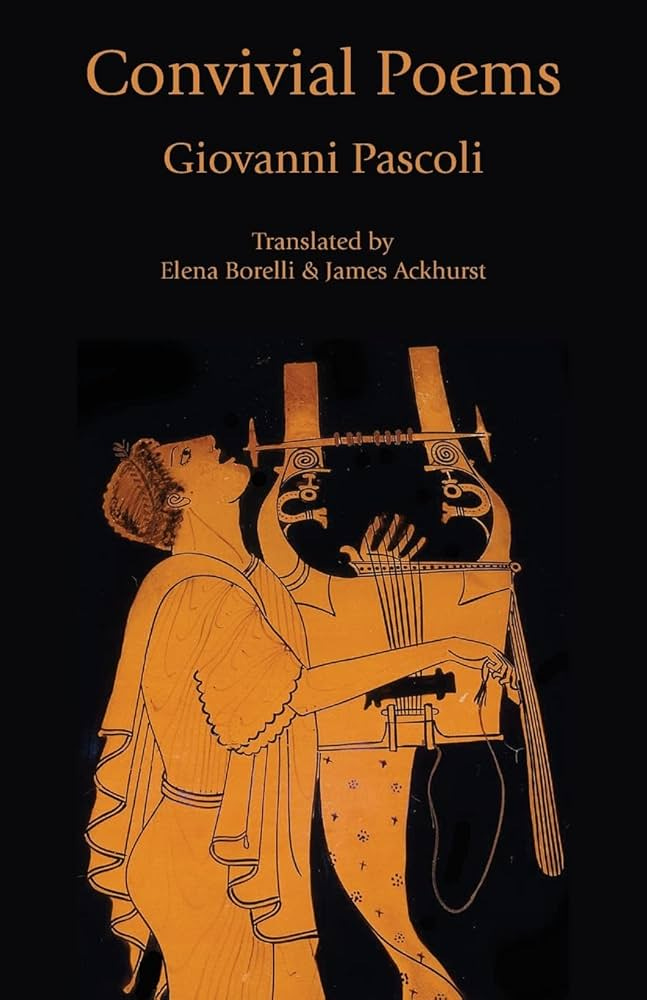Don’t believe the spin
Plus, Tim Parks on DH Lawrence’s Italian adventures and a first look at Luca Guadagnino’s Queer
Listening to Giorgia Meloni speak you could be forgiven for thinking Italy’s in great shape. In a recent press conference on Rete 4 ahead of the autumn budget, the Prime Minister made a series of triumphalist claims about the state of the nation’s coffers. “Despite the slowdown in the world economy,” she proclaimed, “Italy is growing more than other European nations. Macroeconomic data – GDP, employment, exports, investments, are all extremely positive.” On and on she went, fielding questions with a crooked smile as she sought to bewilder her TV audience. The actual numbers, of course, show a different story. It is not the case that Italy’s GDP is among the healthiest in Europe. In fact, ISTAT’s most recent data shows the country’s growth is at + 0.2 % against the EU average of + 0.3%. Yes, there was an export boom at the start of the year, but recent figures actually show a decline of 1.5% since the summer. Hardly something to boast about. The picture looks even worse when you explore things that really matter to people. Jobs. Wages. Purchasing Power. Since 2008, across the EU, average household income has increased slightly, going from an index of 110,12 to 110,82. Italy’s score, on this same admittedly baffling metric, has actually dropped from 94,15 to 93,74. Only Greece is faring worse. Since her return from vacation Meloni has been clutching at straws and conjuring untruths about economic prosperity precisely as most Italians are experiencing a sharp decline in living standards. Surely, the government can only play this game for so long…
Jacobin magazine published an interesting feature this week about the historic Italian anti-fascist movement Giustizia e Libertà, a democratic association active in Paris throughout the years of Mussolini’s regime which challenged the politics of the dictatorship despite serious risk. Several exiled members were assassinated for participating in the group’s activities, most famously Carlo Rosselli, the founder, who was shot by fascist secret services while taking a walk in the streets of Bagnoles de l'Orne Normandie in 1937. In the article, Jacobin’s Chris Maisano sits down to talk Marco Bresciani, author of Learning From the Enemy, a new book about this unduly overlooked resistance movement, and what it can teach us about anti-fascism in the 21st Century. The first part of the conversation is — unfortunately — marred by a frustrating proliferation of abstract nouns and social science jargon. Nevertheless, it’s worth persisting with this one for some excellent analysis of competing historic visions of Italian nationhood and what many then (as now) see as the unfinished project of Mazzini’s Risorgimento. So here’s the link.

Italy’s grumpiest, most belligerent travel writer Tim Parks has got a new piece out in the Guardian this week which — the usual caveats aside — is well worth a read. Back in 2022 Parks took a trip, tracing the footsteps of DH Lawrence who famously documented a journey he took in 1914 from Konstanz in Germany through the Swiss Alps down towards Italy’s Lake Como. Lawrence, as you may know if you’ve read his account inTwilight in Italy, was famously (if-performatively) ill-humoured about the scenes he encountered. He complained constantly about the harsh Calvinism of the Germanic peoples, the crude utilitarianism of the city folk and what he saw as their patent lack of eros. Parks – himself something of a fussbudget – is more charitable and finds pleasure in the “dreamy atmosphere of pleasure and denial” and villages “marooned in a charming past, free from all kitsch.” I have to say, his own account is hampered by a rather self-indulgent conceit – namely the author’s own own search for literary inspiration. That said, there’s some lovely landscape writing here, and despite all gripes one can’t help but be seduced by his account of the journey. Here’s the link.
Arts and culture: Convivial Fragments
This year’s Venice film festival has, by most accounts, been a triumph. Critics seem to be in a state of exuberant rapture following premieres of Pedro Almodóvar’s ‘The Room Next Door’, Pablo Larraín’s ‘Maria’ and Brady Corbet’s ‘The Brutalist’ – all of which look excellent. Top of the bill as far as Italian offerings go is, without doubt, the new Luca Guadagnino film ‘Queer’, an adaptation of William Burroughs’s novel of the same name, which tells the story of an American ex-pat cruising around the bars of Mexico City in a nihilistic daze in search of sex and drugs. The first clip dropped shortly after the screening on Lido on Tuesday, and from these two minutes alone it’s clear this is going to be something special. The footage shows Daniel Craig, our protagonist, rocking up in a bar when a young man attracts his attention. After a cringe-inducing display of peacockish desire, a woman arrives and takes her seat next to the young man in question. Craig leaves the bar, crestfallen. It’s a simple premise, but the execution — the lighting, the perfectly directed body language, the editing – are a great testimony of how singularly Guadagnino has mastered the craft of translating subtle ‘literary’ emotions on screen. The film is out on general release later this autumn, so watch this space. In the meantime, do check out the clip below.
Back in 1904 the poet Giovanni Pascoli published a beguiling anthology entitled Poemi conviviali. At the time, critics and the reading public alike were were bowled over by the collection’s retelling of well-known ancient myths via the then new tools of French symbolism. The book is still a staple on university ‘modernism’ reading lists across the country. Outside of Italy, sadly, Pascoli’s masterpiece has been largely forgotten, and it’s now read by academics and scholars alone. This month, in an effort to remedy this, the poet James Ackhurst and literary historian Elena Borelli, have developed an ENG language podcast to commemorate 120 years since the book’s publication. Each episode tackles a single poem: actors offer readings and a panel of translators and other experts chip-in with their comments on the underlying themes and challenges of the text. I think this is a great “popular” way of drawing attention to a criminally underrated literary work and very much hope this podcast gets the listenership it deserves. So check out the recordings here and, if you like what you hear, you can buy Pascoli’s collected poems straight from the publisher.
Recipe of the week: Peperoni imbottiti alla beneventana
With September now in full swing Italy’s late summer produce is at its finest. I’m thinking, above all, about the humble peperone, the bell pepper, which is currently fresh and bulbous on market stalls across the country. Italy’s best peppers come from the Southern regions, from Campania and Calabria. Every household seems to have its own way of stuffing them. You’ll find pickled peppers stuffed with pork, fried peppers filled with cheese or tuna alongside a whole host of other variations. One of the tastiest, cheapest and most unusual fillings, however, is to be found in the ancient city of Benevento. Here the locals forgo decadent meat and fish fillings and instead stuff the vegetable with a simple mix of breadcrumbs, olives, tomato, oregano and a tiny sprinkle of cheese. The resulting dish – “peperoni imbottiti alla beneventana” – makes a wonderful vegetarian secondo piatto which is particularly delicious served alongside a simple green salad. My own go-to recipe is Katie Parla’s version in her book Food of the Italian South. If you don’t own a copy, however, don’t despair. Tracey Zabar has usefully transcribed it over at her blog, so you can check out the link here.
I’m Jamie Mackay, a UK-born, Italy-based writer, working at the interfaces of journalism, criticism, poetry, fiction, philosophy, travelogue and cultural-history. I set up ‘The Week in Italy’ to make a space to share a regular overview of the debates and dilemmas, innovations and crises that sometimes pass under the radar of our overcrowded news feeds, to explore politics, current affairs, books, arts and food. If you’re a regular reader, and you enjoy these updates, I hope you’ll consider becoming a supporter for EUR 5.00 per month. I like to think of it as a weekly catch-up chat over an espresso. Alternatively, if you’d like to send a one-off something, you can do so via PayPal using this link. Grazie!






